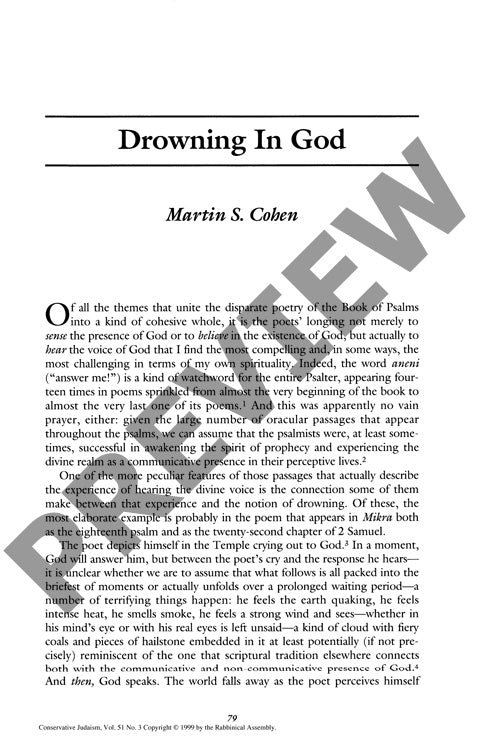Drowning in God
Couldn't load pickup availability
Across biblical literature, prophets and poets share a striking pattern: divine revelation follows the terror of drowning. From Moses' early brush with death to Jonah's submarine psalm, near-drowning experiences consistently precede transformative encounters with God's voice. Close textual analysis of Psalms 18, 69, 88, and 124 reveals how ancient writers weaponized this paradox, deploying water imagery to explore the ambivalent human longing for divine connection. The Hebrew term "aneni" (answer me) appears fourteen times throughout the Psalter, marking desperate pleas for divine communication that emerge from metaphorical depths. Through comparative literary analysis of multiple biblical texts, a clear pattern emerges: poets describe submersion and mortal terror, followed by divine rescue and prophetic revelation. This spiritual threshold experience, shared across prophetic narratives and psalmic testimonies, suggests that ancient Israelite religious consciousness understood a profound truth - authentic encounters with the divine require confronting existential fear. The interplay between desperate longing for transcendent connection and terror of that very connection created the psychological conditions necessary for genuine prophetic experience.

More Information
-
Physical Description
-
Publication Information
Published 1999
ISBN
-
Publication Credits
Martin Cohen

